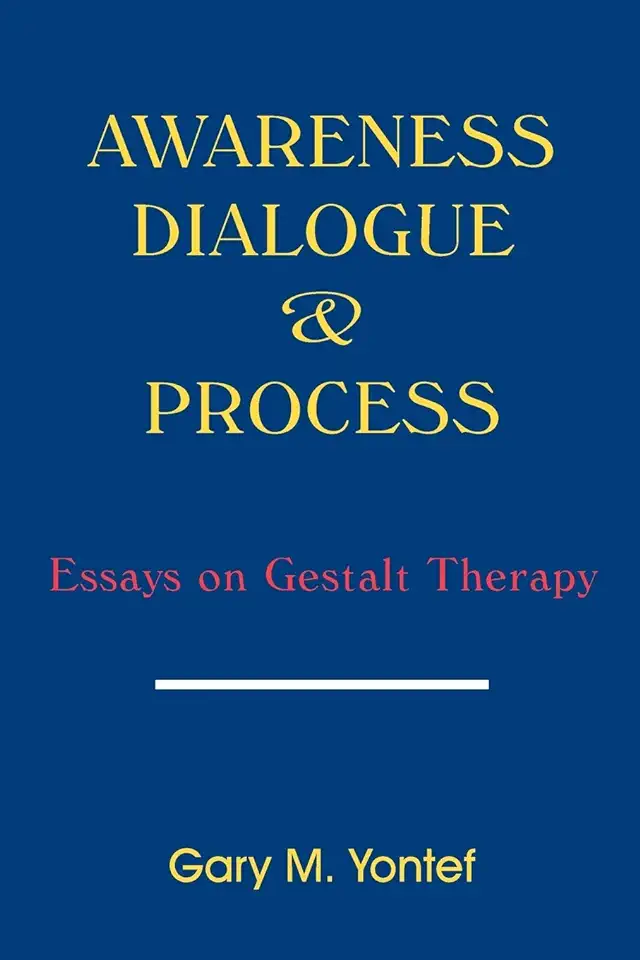
Process, Dialogue, and Awareness - Gary M. Yontef
Process, Dialogue, and Awareness: A Guide to Experiential Psychotherapy
Introduction
In "Process, Dialogue, and Awareness," Gary M. Yontef offers a comprehensive and practical guide to experiential psychotherapy, an approach that emphasizes the importance of the client's subjective experience in the therapeutic process. Yontef draws on his extensive clinical experience to provide a wealth of insights and techniques that can help therapists create a safe and supportive environment in which clients can explore their inner world and achieve lasting change.
Key Concepts
Yontef begins by introducing the key concepts that underpin experiential psychotherapy, including:
- Process: The ongoing, ever-changing nature of the therapeutic relationship.
- Dialogue: The verbal and nonverbal communication that takes place between therapist and client.
- Awareness: The client's conscious experience of their thoughts, feelings, and bodily sensations.
Yontef argues that these three elements are essential for creating a therapeutic relationship that is both effective and transformative.
The Therapeutic Relationship
Yontef devotes a significant portion of the book to discussing the therapeutic relationship, which he views as the foundation of experiential psychotherapy. He emphasizes the importance of empathy, genuineness, and respect in building a strong therapeutic alliance. Yontef also discusses the importance of boundaries and self-care for therapists, as well as the challenges that can arise in the therapeutic relationship.
Techniques and Interventions
Yontef provides a wealth of specific techniques and interventions that therapists can use to help clients explore their inner world and achieve change. These techniques include:
- Focusing: A process of paying attention to the felt sense of the body.
- Dream work: Exploring the symbolism and meaning of dreams.
- Imagery: Using images to access the unconscious mind.
- Role-playing: Acting out different aspects of the self.
- Gestalt therapy: A holistic approach to therapy that emphasizes the importance of the whole person.
Yontef provides detailed instructions on how to use these techniques effectively, and he offers case examples to illustrate their application in real-world settings.
Applications
Yontef discusses the applications of experiential psychotherapy in a variety of settings, including:
- Individual therapy: Experiential psychotherapy can help individuals with a wide range of issues, such as anxiety, depression, trauma, and relationship problems.
- Couples therapy: Experiential psychotherapy can help couples to improve communication, resolve conflict, and build intimacy.
- Family therapy: Experiential psychotherapy can help families to address issues such as addiction, abuse, and communication problems.
- Group therapy: Experiential psychotherapy can help group members to explore their inner world, connect with others, and learn new ways of relating.
Yontef provides specific guidance on how to adapt experiential psychotherapy to different settings and client populations.
Conclusion
"Process, Dialogue, and Awareness" is a comprehensive and practical guide to experiential psychotherapy that is essential reading for therapists of all levels of experience. Yontef's insights and techniques can help therapists create a safe and supportive environment in which clients can explore their inner world and achieve lasting change.
Why You Should Buy This Book
If you are a therapist looking for a comprehensive and practical guide to experiential psychotherapy, then "Process, Dialogue, and Awareness" is the book for you. Yontef's insights and techniques can help you create a safe and supportive environment in which clients can explore their inner world and achieve lasting change.
Here are a few reasons why you should buy this book:
- It is comprehensive. "Process, Dialogue, and Awareness" covers everything you need to know about experiential psychotherapy, from the key concepts to the specific techniques and interventions.
- It is practical. Yontef provides detailed instructions on how to use experiential psychotherapy techniques effectively, and he offers case examples to illustrate their application in real-world settings.
- It is written by an expert. Yontef is a leading expert in experiential psychotherapy, and he has decades of experience as a therapist and trainer.
If you are serious about becoming an effective experiential psychotherapist, then "Process, Dialogue, and Awareness" is a must-read.